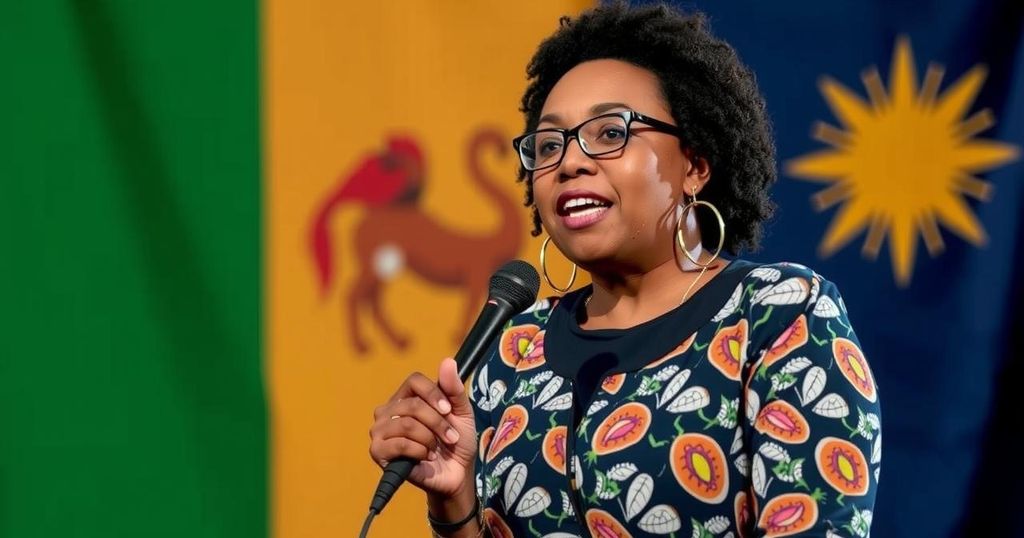Namibia on Track for First Female President Amid Election Disputes
Netumbo Nandi-Ndaitwah is leading the presidential race in Namibia, potentially becoming the first female president, but may face a run-off if she does not secure over 50 percent of the votes. The election was marred by technical difficulties, leading to allegations of fraud and opposition claims of an illegitimate process. As tensions rise, a legal challenge from opposition parties is anticipated.
Namibia is poised to potentially elect its first female president, with Netumbo Nandi-Ndaitwah leading the ongoing count from the recent election. As of the latest reports, with 65.57 percent of votes counted, Nandi-Ndaitwah, representing the governing South West Africa People’s Organisation (SWAPO), has secured 54.82 percent of the votes. Despite her lead, a challenge looms as she may need to surpass the 50 percent threshold to avoid a run-off election.
The election results were delayed due to technical difficulties and ballot shortages, resulting in an extended voting period that led to accusations of the process being illegitimate by the opposition Independent Patriots for Change (IPC), whose candidate, Panduleni Itula, trails behind with 28 percent of the votes. The electoral commission confirmed a robust turnout with 73 percent of nearly 1.5 million registered voters participating.
Currently serving as Vice President, Nandi-Ndaitwah may face a second round of voting if her final tally does not exceed the necessary majority. Elections in Namibia have historically been regarded as stable; however, discontent among youth voters regarding unemployment and social inequality is influencing the political landscape. Opposition parties are mobilizing to challenge the election’s validity in court, citing a range of alleged irregularities.
The anticipated legal actions reflect a significant shift in the political environment as opposition leaders assert the necessity of upholding democratic principles and ensuring equitable governance, emphasizing that the electoral process must reflect the will of all citizens, not just those in power.
The political climate in Namibia is currently tense due to the recently conducted presidential and National Assembly elections. Netumbo Nandi-Ndaitwah’s strong lead represents a historic opportunity for the nation, potentially marking a breakthrough in gender representation at the highest level of government. The recent technical issues during the electoral process and allegations of irregularities by the opposition have raised concerns about the integrity and fairness of the elections, a stark contrast to the country’s previously stable electoral history since gaining independence in 1990. As the results unfold, the implications for the ruling SWAPO party and the evolving youth discontent play a crucial role in the ramifications of these elections.
The unfolding electoral saga in Namibia may herald a historic moment with the potential election of Netumbo Nandi-Ndaitwah as the first female president. However, the ongoing disputes regarding the election’s legitimacy and calls for legal challenges by opposition parties highlight significant concerns regarding fairness and transparency in Namibia’s democratic processes. As the nation grapples with high youth unemployment and persistent inequalities, the next steps in this electoral process will be critical in determining the future political landscape of Namibia.
Original Source: www.aljazeera.com




Post Comment